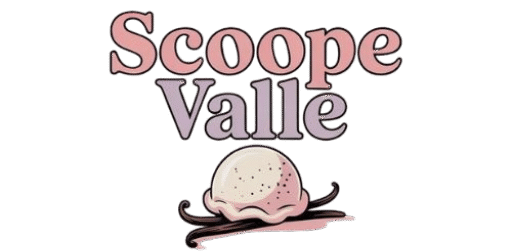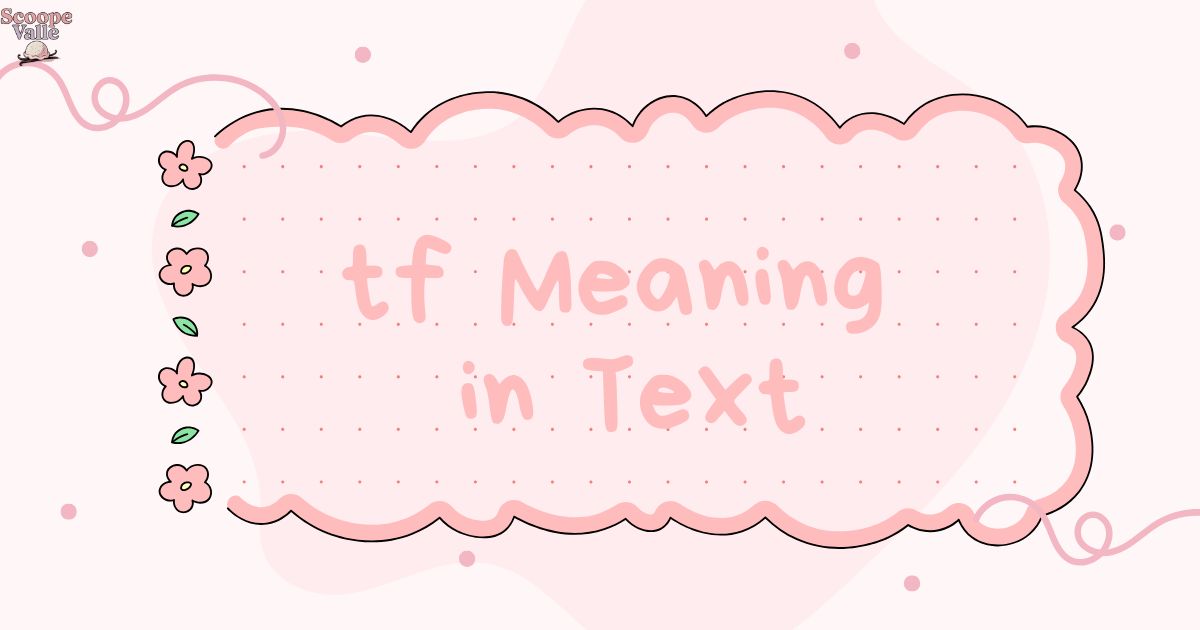Ever been scrolling through your messages or social media feed and stumbled upon “TF” in a conversation? You pause for a moment, wondering what it means. You’re not alone! “TF” is one of those short, expressive acronyms that have become a major part of modern digital language. It’s quick, emotional, and often used to show shock, disbelief, or even frustration. In this guide, we’ll break down what “TF” means in text, its origins, where it’s used, and how to respond without missing a beat.
Definition & Meaning
In texting, TF typically stands for “The F*”**, a shortened and slightly censored version of a popular expletive. It’s often used to show surprise, confusion, disbelief, or annoyance in informal communication. Think of it as a stronger version of “What the heck?” or “No way!”
Here are a few quick examples to understand it better:
- Friend 1: “They canceled the party last minute.”
Friend 2: “TF? Seriously?!” - Gamer 1: “I lost all my progress!”
Gamer 2: “TF, that’s crazy!”
Essentially, “TF” adds emotion and intensity to digital chats without writing the full expletive. It keeps the conversation edgy yet still acceptable in casual spaces.
Also read: IONK Meaning in Text: Your Ultimate Guide to This Trendy Slang
Background & History
The term “TF” has its roots in internet culture and digital communication. It emerged in the early 2000s, when users began shortening phrases to type faster in texts, forums, and instant messaging apps. As texting became the go-to form of communication, abbreviations like WTH (What the Heck), WTF (What the F*)**, and TF became popular for expressing raw emotions quickly.
“TF” became particularly common among younger audiences—especially millennials and Gen Z—who prefer short, expressive language in chats, memes, and gaming communities.
While “TF” primarily means “The F***,” it can occasionally stand for other things depending on the context, such as Task Force in professional environments or Team Fortress, a popular video game. However, in texting or social media, it almost always carries the emotional, slang-based meaning.
Usage in Various Contexts
The charm of “TF” lies in its flexibility. It’s used across multiple online and offline contexts where emotions run high.
1. Texting and Messaging 📱
In texting, people use “TF” to express sudden reactions shock, disbelief, or anger.
- “TF! You actually did that?”
- “TF is going on right now?”
2. Social Media 💬
On platforms like X (Twitter), Instagram, or TikTok, “TF” often appears in captions, memes, and comments reacting to surprising posts.
- “TF did I just watch? 😂”
- “This news is wild. TF!”
3. Gaming 🎮
Gamers love using “TF” to react to unexpected moments, glitches, or intense battles.
- “TF, I got knocked out in 2 seconds!”
- “TF happened to the server?”
4. Casual Conversations 🗣️
Even in real-life chats (or while texting friends), “TF” can pop up to emphasize disbelief.
- “TF, they increased prices again?”
Common Misconceptions & Clarifications
Because “TF” is slang, it’s easy to misinterpret. Let’s clear up some common misunderstandings:
- Misconception 1: “TF” is always vulgar.
Reality: While based on an expletive, it’s a toned-down shorthand. Still, it’s best kept for informal chats. - Misconception 2: “TF” has many meanings in texting.
Reality: In casual use, it almost always means “The F***.” Other meanings like Task Force are rare in personal chats. - Misconception 3: It’s okay to use “TF” anywhere.
Reality: Avoid it in formal or professional settings it’s too casual and could be misinterpreted.
Similar Terms & Alternatives
Not every situation calls for slang that hints at profanity. Here are a few cleaner or alternative ways to express the same feeling:
| Expression | Meaning | Usage Context |
|---|---|---|
| What the heck | Mild surprise or confusion | Suitable for all ages |
| No way | Disbelief or astonishment | Friendly conversations |
| Seriously? | Doubt or frustration | Semi-formal or casual |
| OMG | Surprise or shock | Social media & texts |
Use these alternatives if you want to keep your tone friendly or professional while still showing emotion.
How to Respond to This Term
Your response to “TF” depends on the tone of the conversation:
- Casual Reaction:
Friend: “TF, I forgot my wallet!”
You: “Oh no, classic you! 😂” - Funny Response:
Gamer: “TF, I died again!”
You: “Bro, uninstall already! 😆” - Neutral Reply:
Friend: “TF, my phone’s acting up.”
You: “Did you try restarting it?” - Professional Setting:
Avoid mirroring the slang; respond calmly and formally instead.
Colleague: “TF happened to the files?”
You: “Let me check the issue.”
Regional or Cultural Differences
While “TF” is widely understood in English-speaking regions like the U.S., U.K., and Canada, its meaning may not translate directly in non-English cultures.
In some regions, it might be seen as too bold or impolite due to its link to profanity. Meanwhile, gamers or internet users worldwide may understand it as slang or a reference to Team Fortress.
When chatting internationally, it’s smart to gauge the other person’s comfort level with slang.
Comparison with Similar Terms
Let’s compare “TF” to some similar phrases people use online:
| Term | Meaning | Key Difference |
|---|---|---|
| TF | Short for “The F***” | Stronger emotional tone |
| WTH | “What the Heck” | Mild, safe for all audiences |
| WTF | “What the F***” | More explicit version |
| OMG | “Oh My God” | Neutral surprise or excitement |
“TF” stands out because it packs emotion without being fully explicit, making it the go-to for many younger texters.
Usage in Online Communities & Dating Apps
“TF” thrives in online spaces where emotions and humor dominate:
- Twitter/X: Used to react to strange or shocking posts.
Example: “TF did I just read? 😳” - Discord or Gaming Chats: Common when reacting to game bugs or exciting moments.
Example: “TF, the boss disappeared mid-fight!” - Dating Apps: Sometimes used playfully to show curiosity or surprise.
Example: “TF, you’ve been to 10 countries? That’s awesome!”
While it’s okay in casual chats, be careful not to overuse it—it can sound too harsh or informal.
Hidden or Offensive Meanings
Even though “TF” is a shorthand, it’s still tied to profanity. Using it in formal environments or with people you don’t know well can come off as rude or disrespectful.
Sometimes, people might confuse it with professional abbreviations like Task Force or gaming titles like Team Fortress, so context is key.
Always consider your audience what feels normal in a meme or text might not fit in a work email.
Suitability for Professional Communication
When it comes to work-related chats, “TF” should be off-limits. It’s casual, emotionally charged, and linked to an expletive. Using it in emails or formal group chats can seem unprofessional or even disrespectful.
Instead of saying:
- “TF happened to the meeting?”
Try: - “What happened with the meeting?”
Simple phrasing keeps your tone professional and respectful while maintaining clarity.
FAQ’s
What does TF mean in text?
It means “The F***,” a way to express shock, disbelief, or confusion in casual conversations.
Is TF offensive?
It can be, depending on the context and audience. It’s best for informal settings.
Can TF mean something else?
Yes—less commonly, it can mean “Task Force” or “Team Fortress,” but that’s rare in texting.
Should I use TF at work?
No. It’s too informal and connected to slang or profanity.
Is TF popular among teens?
Yes, it’s widely used by Gen Z and millennials on platforms like TikTok, Twitter, and Snapchat.
What can I say instead of TF?
Try “What the heck,” “No way,” or “Seriously” for a more polite tone.
Conclusion
“TF” is one of those internet acronyms that perfectly captures the fast, expressive nature of digital communication. It shows surprise, disbelief, or frustration without spelling out the full expletive, making it a staple in modern slang.
However, while it’s great for casual chats, memes, or gaming conversations, it’s not suitable for professional or formal contexts. Always read the room (or chat) before using it!
Tylor John, with five years’ experience, beautifully crafts information on all topics and inspiring readers worldwide with positivity, faith, creativity, love, and hope.

